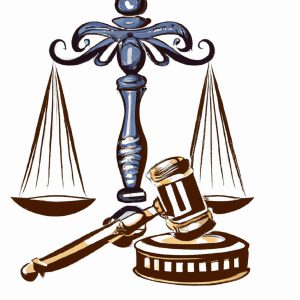As trustees of a will, individuals hold a unique and weighty responsibility in ensuring the smooth execution of the wishes outlined in a trust document. In the complex world of estate planning and probate law, trustees play a pivotal role in safeguarding assets, distributing inheritances, and upholding the integrity of the deceased’s intentions. At Morgan Legal Group in New York City, we are well-versed in the intricate duties and legal obligations that trustees must fulfill. In this article, we will explore the multifaceted responsibilities and duties of a trustee, shedding light on the critical role they serve in the administration of a will.
Duties and Responsibilities of a Trustee of a Will
As a trustee of a will, you have a crucial role in ensuring that the wishes of the deceased are carried out in a legal and responsible manner. Your duties and responsibilities include:
- Asset Management: You are responsible for managing the assets within the trust, including investing, liquidating, and distributing them according to the terms of the will.
- Record-Keeping: It is essential to keep detailed records of all transactions, communication, and decisions made on behalf of the trust to ensure transparency and accountability.
- Communication: You must communicate regularly with beneficiaries, co-trustees, and other relevant parties to keep them informed of the progress and decisions regarding the trust.
| Responsibility | Description |
|---|---|
| Legal Compliance | Ensure all actions taken are in compliance with state and federal laws. |
| Beneficiary Advocacy | Act in the best interest of beneficiaries and ensure their needs are met. |
Overall, as a trustee of a will, you are entrusted with a significant amount of responsibility and must act with integrity, diligence, and professionalism to fulfill your duties effectively.

Navigating Legal and Financial Complexities as a Trustee
As a trustee of a will, your responsibilities are multifaceted and often complex. It is essential to understand the legal and financial intricacies that come with this role to effectively carry out the wishes of the deceased individual. One of the primary duties of a trustee is to manage the assets within the trust for the benefit of the beneficiaries. This includes making investment decisions, distributing income and principal, and ensuring that the trust is administered in accordance with the terms outlined in the will.
Additionally, trustees are responsible for handling any legal matters that may arise during the administration of the trust. This includes addressing any challenges to the validity of the trust, resolving disputes among beneficiaries, and ensuring that all legal requirements are met. It is crucial for trustees to stay informed about changes in estate planning laws and regulations to ensure compliance and protect the interests of the beneficiaries. Navigating these legal and financial complexities requires a thorough understanding of the trust document, as well as the ability to make informed decisions in the best interest of the trust and its beneficiaries.

Ensuring Compliance with the Terms of the Will
When it comes to ensuring compliance with the terms of a will, the role of a trustee is crucial. A trustee is responsible for managing and distributing the assets of an estate according to the wishes outlined in the will. This includes making sure that all beneficiaries receive their entitled shares and that any debts and taxes are paid off.
Additionally, a trustee must adhere to specific legal requirements and guidelines to avoid any potential conflicts or challenges to the will. This includes keeping accurate records of all transactions, providing regular updates to beneficiaries, and seeking court approval for certain decisions. Ultimately, the trustee plays a vital role in overseeing the proper distribution of assets and upholding the integrity of the deceased’s final wishes. To learn more about the duties and responsibilities of a trustee, contact us at Morgan Legal Group in New York City.

Strategic Decision-making and Communication as a Trustee
As a trustee of a will, it is crucial to understand the responsibilities and duties that come with this important role. One of the primary functions of a trustee is to manage and distribute the assets of the estate in accordance with the wishes outlined in the will. This requires making strategic decisions to ensure that the assets are handled properly and in the best interest of the beneficiaries.
Effective communication is essential for a trustee to fulfill their duties successfully. Clear and transparent communication with beneficiaries, legal advisors, and other relevant parties is key to building trust and ensuring the smooth administration of the estate. By maintaining open lines of communication, a trustee can address any concerns or questions that may arise, fostering a positive and cooperative relationship with all stakeholders involved in the process.
Q&A
Q: What is a trustee of a will?
A: A trustee of a will is a person appointed to manage the assets and distribute them according to the terms outlined in the will.
Q: What are the responsibilities of a trustee of a will?
A: The responsibilities of a trustee include safeguarding the assets, paying debts and taxes, distributing assets to beneficiaries, and ensuring that the wishes of the deceased are carried out.
Q: Can a trustee be someone other than a family member?
A: Yes, a trustee can be a family member, friend, attorney, or financial institution.
Q: What qualities should a trustee possess?
A: A trustee should be trustworthy, organized, financially savvy, and able to make decisions in the best interest of the beneficiaries.
Q: How long does a trustee of a will serve?
A: The length of time a trustee serves can vary depending on the terms of the will, but typically they serve until all assets have been distributed and all responsibilities have been fulfilled.
Q: What happens if a trustee is unable to fulfill their duties?
A: In the event that a trustee is unable to fulfill their duties, a successor trustee may be named in the will or appointed by the court.
Q: Are trustees compensated for their services?
A: Trustees can be compensated for their services, either through a fee outlined in the will or by the beneficiaries approving a fee.
Q: Can a trustee be removed from their position?
A: Yes, a trustee can be removed from their position if they are found to be breaching their duties or are unable to carry out their responsibilities effectively.
The Way Forward
In conclusion, the role of a trustee in executing a will is a vital one that requires careful attention to detail, confidentiality, and a strong sense of responsibility. By ensuring that the wishes of the deceased are carried out in a fair and impartial manner, a trustee plays a crucial role in safeguarding the legacy of the departed. If you are ever appointed as a trustee of a will, remember to approach the task with diligence and integrity, knowing that you are entrusted with the important duty of honoring someone’s final wishes.
 Understanding the role of a trustee in a will is crucial for anyone involved in estate planning or executing a deceased loved one’s estate. A trustee is a person or entity appointed within a will to manage and distribute the assets of the deceased according to their wishes. This is an important responsibility and should not be taken lightly. In this article, we will delve into the duties and responsibilities of a trustee and how they play a role in ensuring a smooth transfer of assets after someone’s passing.
Understanding the role of a trustee in a will is crucial for anyone involved in estate planning or executing a deceased loved one’s estate. A trustee is a person or entity appointed within a will to manage and distribute the assets of the deceased according to their wishes. This is an important responsibility and should not be taken lightly. In this article, we will delve into the duties and responsibilities of a trustee and how they play a role in ensuring a smooth transfer of assets after someone’s passing.
Key Duties and Responsibilities of a Trustee
1. Duty to Carry Out the Wishes of the Deceased
The primary responsibility of a trustee is to carry out the wishes of the deceased as outlined in their will. This includes managing and distributing the assets according to the instructions provided in the will. A trustee must act with integrity and honesty, always putting the wishes of the deceased above their own personal interests.
2. Managing Assets Within the Trust
A trust is a legal entity created by the deceased to hold and manage their assets. It is the trustee’s responsibility to manage and protect these assets until they are distributed to the designated beneficiaries. This may include investing money, managing property, and paying bills and taxes on behalf of the trust.
3. Communication with Beneficiaries
A trustee is also responsible for communicating with the beneficiaries of the will and keeping them informed about the status of the assets within the trust. This includes providing regular updates and responding to any inquiries or concerns from the beneficiaries.
4. Distributing Assets
Once all necessary taxes, debts, and expenses have been paid, it is the trustee’s responsibility to distribute the remaining assets to the beneficiaries as outlined in the will. This requires careful record-keeping and following the specific instructions provided by the deceased.
5. Legal Obligations and Fiduciary Duty
A trustee is held to a high standard of care and is bound by a legal obligation known as a fiduciary duty. This means that they must act in the best interests of the beneficiaries and make decisions that are in line with the deceased’s wishes. A trustee also has a legal responsibility to act prudently and responsibly when managing and distributing the assets.
Benefits of Appointing a Trustee
1. Avoiding Probate
One of the main benefits of appointing a trustee of a will is avoiding the probate process. Probate is the legal process of proving a will’s validity and transferring assets after someone’s passing. It can be a lengthy and costly process, but with a trust in place and a trustee appointed, the assets can be distributed directly to the beneficiaries without going through probate.
2. Professional Expertise and Experience
Appointing a trustee with professional expertise and experience in managing assets can provide peace of mind for the deceased individual and their loved ones. Managing and distributing assets can be complex, and a trustee can ensure that it is done efficiently and in accordance with the deceased’s wishes.
3. Maintaining Privacy
Wills that go through the probate process become part of the public record, meaning that anyone can access the information contained within them. By appointing a trustee, the will and its contents can remain private, and the assets can be distributed without public scrutiny.
Practical Tips for Choosing a Trustee
1. Choose someone you trust implicitly
When appointing a trustee, it is crucial to choose someone you trust implicitly to carry out your wishes and handle your estate with care. This could be a family member, friend, or a professional individual or entity.
2. Consider appointing co-trustees
Appointing co-trustees, such as a trusted family member and a professional trustee, can provide a balance of personal relationships and professional expertise.
3. Discuss your decision with potential trustees
It is essential to have open and honest discussions with potential trustees before appointing them to ensure they are willing and comfortable taking on the responsibility.
In conclusion, a trustee of a will plays a crucial role in managing and distributing the assets of the deceased individual according to their wishes. The responsibilities and duties of a trustee are significant and should not be taken lightly. By appointing a trustee with professional expertise and experience, an individual can rest assured that their estate will be handled responsibly and their wishes will be carried out accordingly. When choosing a trustee, it is essential to consider the individual’s trustworthiness and have open discussions about their willingness to fulfill the role. With proper planning and a reliable trustee, the transfer of assets can proceed smoothly, providing peace of mind for the deceased and their loved ones.









